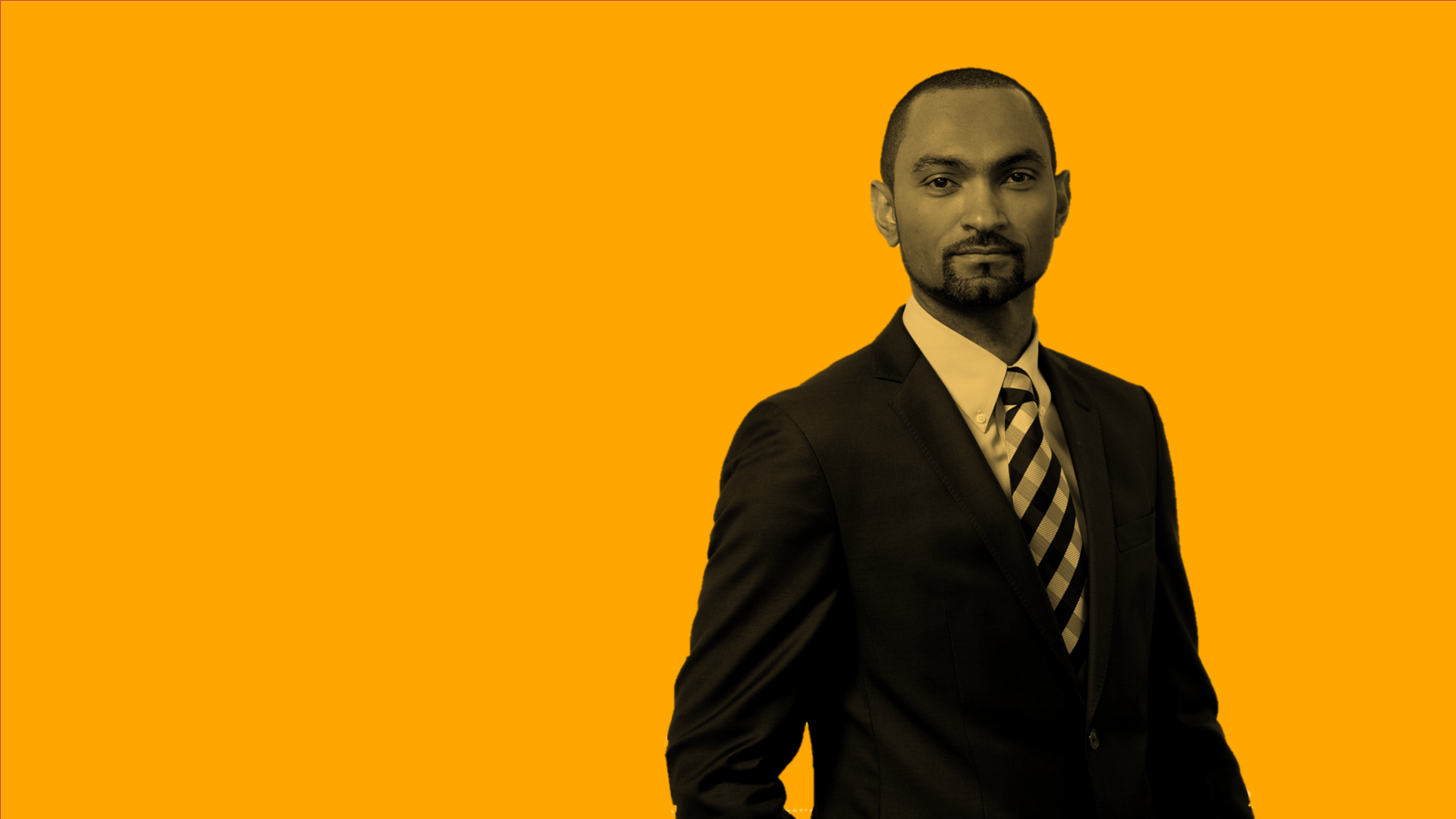Mark Charmant is Auxilion’s Head of Service Transformation & Senior Consultant for ITSM. He told us about his journey with the company, what he has found unique about the culture, and his work on the evolution of Managed Services.
Background
What was Mark’s background before joining Auxilion?
“I started in IT in 2000. I was 20 years old and I didn’t really know what I wanted to do. I was debating whether I wanted to work in an office environment or not. Opportunity came at that stage with Compaq, who were hiring. Fortunately, they gave full training, so IT experience was not a requirement for the job- which was good because all I knew at that stage was how to switch on a Windows 98 PC and maybe email!
“I went in as a Service Desk Engineer. 17 years later, Compaq had turned into HP, which had turned into HPE. I was with them throughout that journey. Although I wasn’t technical, I was good at analysing situations and trouble shooting. If I had the information I could trouble shoot, so I wasn’t a total failure as a technical engineer!
“I got frustrated quite quickly with firefighting. At a very early stage I became focused on the experience of the callers and the capture of knowledge to make sure that I could do things better next time. I had a natural evolution into a trainer and then a technical team lead. Surprising for someone who wasn’t technical! But I was organised, and I had information available. I realised that within IT there were two tracks: a technical track and a leadership track. I decided I wanted to go down the leadership track- management, coordination. From that point on, I put all my efforts into that.”
Mark studied alongside his professional role.
“While I was working in HP, I finished my business degree. I did a business degree to get a better platform for further development. I had a lot of people that believed in me and allowed me to grow through several leadership roles- Service Desk Technical Lead, Service Delivery Specialist, Service Desk Delivery Manager, and Service Portfolio Manager.
“In 2014, I got the opportunity to take on the role of Account Delivery Executive. This was for one large global customer with my responsibilities spread across Europe, Africa, the Middle East. That was a very interesting role and once I stepped up to that level, my horizon broadened which forced me to make new connections in my acquired skills and knowledge. I saw that I could make that step.”
Around this time, Mark decided to pursue a new challenge.
“A couple of years into the role, I started wondering where I could go within HPE. There were a lot of opportunities, but I had gotten comfortable, and I needed a new barometer for my acquired skills. I took the opportunity to leave HPE in 2016, which as you can imagine after 17 years was a big move! It’s very difficult to understand how your skillset translates outside of a big organisation into other areas. But I saw the opportunity for Head of Managed Services Ireland with Auxilion. I applied for it, went through two rounds of interviews, and I was successful.”
With Auxilion
How did Mark find the new working environment?
“I was five years with Auxilion last March (2022) and when I think back, it has been ever-changing and at times pretty intense.”
“I think on my second day I realised, ‘Wow, this is a totally different culture.’ Coming from large organisations like multinationals, you don’t realise how insulated you are behind process, procedure, layers of management. On my second day I arrived, and I was involved in an SIP discussion for a customer that was going to be one of mine. On my third day I joined the monthly financial review. It made me realise that the pace was faster, the layers of decision making between myself and top management were much thinner.
“Three months into my role as Head of Managed Services Ireland, I took on the added role of Head of Service Operations. I maintained that for about 18 months, having Managed Services Ireland and the SOC under my remit. I was there to try to create that sense of transformative baseline into the services. It was high stress, high pressure, for 18 months.
“I proved to myself that I could apply my knowledge and skill in a new environment. However, the more I did it, the more I arrived at that same epiphany I had as an engineer: I’m more than capable of doing this role, but it’s not the way I want to do things. We were delivering for customers, that was never an issue. But I felt that we were reacting. The customers were happy, but I felt that we weren’t going to get to a point where we could make stepped changes.
“I was thinking very hard about that, and I approached the COO for a discussion. I wanted to do something different, and I wasn’t sure if the opportunity was there for that within the organisation. I knew I didn’t want to be in the middle of the day-to-day operations anymore, having to react to challenges as they came. I wanted to be part of pre-emptive solutions, designing things, anticipating problems, to have some space to develop ideas. I was lucky that at that time, Auxilion had Competency Leads, but the role wasn’t fully formalised. The idea was still being formed, of designating people to be specialists in specific areas. My area was Service Management.”
Managed Services 2.0
This led Mark’s work in a new direction.
“The challenge that was handed to me was to try to help shape the next evolution of Managed Services- as pertaining to Auxilion but also trying to form an idea of where the industry was going. It was a simple enough challenge in a way but turns out, a difficult one to articulate simply. Almost two years later I’m still evolving my ideas…But that’s ok!
“It’s a role that allows me to anticipate rather than react. The analogy I like to use is that some people like to be firemen; I prefer to be the fire safety warden. To put things in place to prevent problems. That then drives me to put a lot of thought into capturing things that I do that work well- I use them again, I work on them, test them, and develop them.”
This role also gave Mark the opportunity to develop new concepts.
“I was bouncing new ideas off quite a few people. There was some trial and error, but ultimately after about 18 months I realised there was a common theme that I never lost sight of. I hadn’t articulated it, but I was always driving towards the same concept of quality over quantity and driving a positive experience. It doesn’t mean that the others aren’t important, but there are a lot of models for them. The quality parts are sometimes overlooked. So that became my focus, and that’s where MS 2.0 came from.”
Mark’s role with Auxilion continued to develop quickly.
“I didn’t progress into a new role so much as expand into a new area. Sometimes because we’re a scale up, opportunities develop unexpectedly. Sometimes the opportunity presents itself before it’s fully formalised. We’re a dynamic organisation, we move into the areas that make sense.”
“The roles with Auxilion started evolving and we started leading with more of a consultative approach. Our consultancy division was pretty much in its infancy when I joined. I learned a lot quickly from colleagues, and I learned how to convert my 20 years of operational knowledge into a consultative approach- which is not as easy as it sounds! It doesn’t work to just give someone the answer all the time. Often, you have to help them to arrive at the correct answer- when they do that they get involved and hold onto the solution a lot more.
“The interesting thing with my role now is that challenges I see are happening across multiple customers, which is changing user expectations and accelerated business/digital growth without proper investment in IT Services (correct structures, correct upskilling, correct scaling, etc.). It ends up creating such a wide gap between IT organisations and the growth of a business that things become very reactionary, which of course I don’t like! I try to make things proactive and help chart the roadmap.”
Culture
How has Mark found the culture at Auxilion?
“Coming from a large multinational, the first thing that surprised me was the CEO- he knew everyone, knew everything that was happening, had a strong finger on the pulse. The autonomy that I had also surprised me, the expectation to make decisions. That was a nice surprise and sometimes a scary one! Before, even though I was in a senior role, all I was really doing was tracking budget and cost, I didn’t have much real influence. Coming into Auxilion, immediately, I was contributing to the budget for the next year. We were expanding, growing, changing. The answers weren’t always there, and you had to design some of them. You had to take the initiative and come up with solutions. That’s a distinct thing with Auxilion- you come in and you adapt quickly, because the business has to adapt quicky.
“I found also that ideas that might be different could meet resistance, but they aren’t shot down. You have the opportunity to reiterate, to convince people. Once I found my voice, if I didn’t agree with something, I had absolute confidence to sit in a room with the rest of the Senior Management Team and say it. That invariably meant that I’d be challenged to come up with a new way, but that was positive too. It was refreshing. Even if people are stuck in the way they’ve always done things, if you give them a better way to do it, they’re usually open to adapting.
“It can be a pressure cooker. But when we need to get something done, everyone pulls together, and we get it done. Everyone is invested in resolving issues. Everyone takes responsibility. We all learn fast and learn together. If something doesn’t work, we learn from that too. It can be scary but it’s always interesting.
“We’ve evolved quite a lot since I started here. We’re still a scale up, as long as you keep scaling you’re always going to be under pressure in different areas. You can either cope with that or you can’t.”
Mark has also seen Auxilion’s company culture put to the test.
“There’s an awareness of the people and a genuine effort to not see employees as just an ID number. Before covid interrupted, there were monthly social get togethers and the CEO had anniversary dinners with employees at milestone service years. These have now been re-established.
“I think for me it’s a way to encapsulate the culture of this place, which is when things are difficult, we’re all in it together, and when we’re doing well, we all share in it. You can see that people feel recognised and appreciated. You may not notice it when you’re in the weeds, but it’s an important effort to make sure everyone feels part of the team.
“We also blur the line between contractors and employees, it’s really just a different mechanism of employment. With the Christmas Party, for example, contractors are always included. The 25-year event earlier this year, there were so many people there that don’t work for us directly. It’s very inclusive.”








